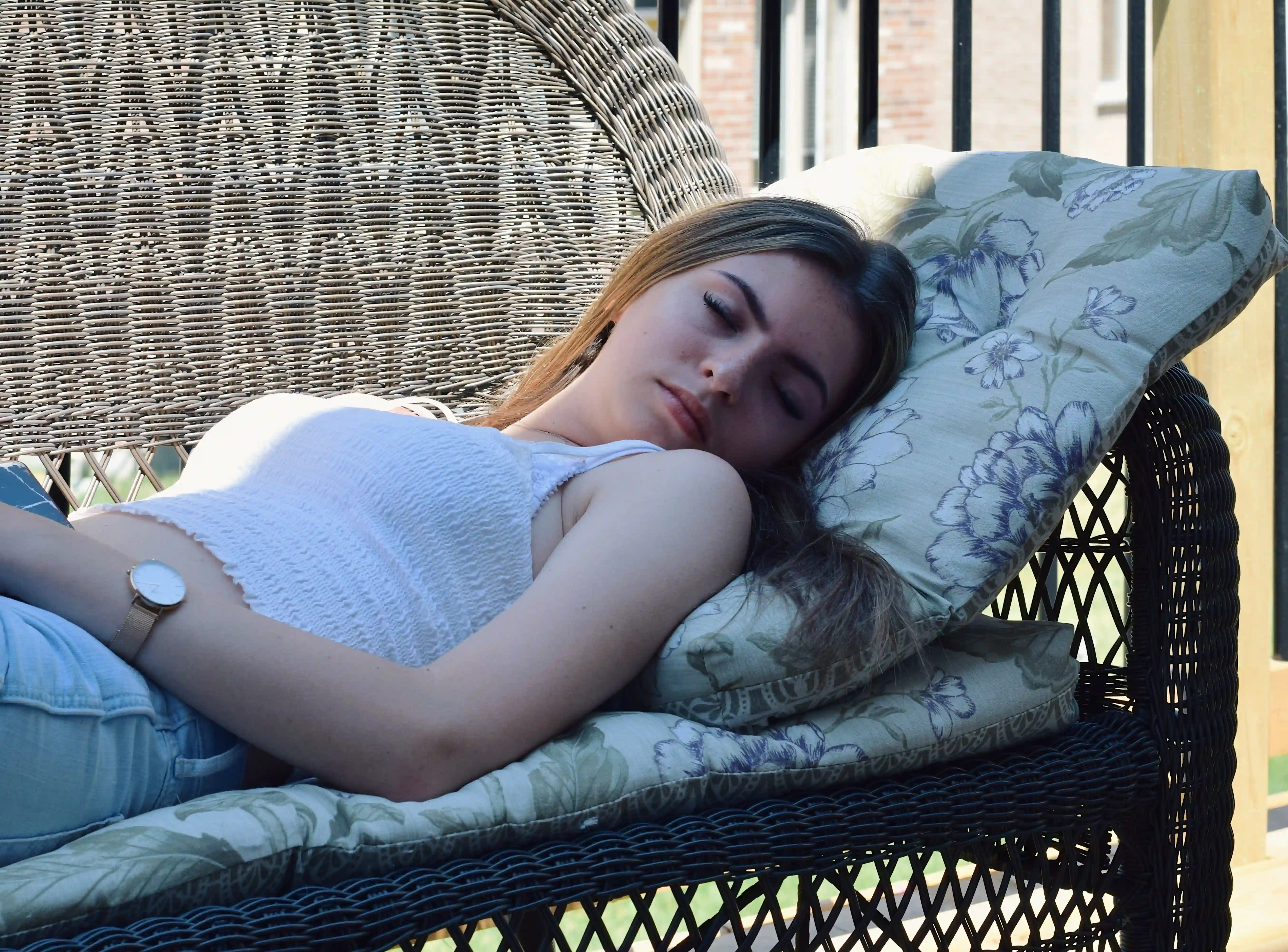Sleep plays a vital role in physical health and development, influencing everything from mood and memory to physical growth. When sleep is disrupted, especially from an early age, the effects ripple through every part of life—not only for the individual, but also for their family and support system.
Smith-Magenis Syndrome (SMS) is a complex, multisystem genetic disorder that affects approximately 1 in 15,000 to 25,000 individuals and is marked by a unique blend of developmental delays, behavioral challenges, and strikingly disrupted sleep patterns.
Understanding the underlying causes of SMS, particularly its impact on sleep, is key to improving quality of life for those affected. In this article, we explore what Smith-Magenis Syndrome is, how it influences sleep, and what strategies can help manage these challenges effectively.
What is Smith-Magenis Syndrome?

Addressing sleep problems effectively requires both a biological and behavioral approach, one that acknowledges the genetic underpinnings of the disorder while also supporting the individual's overall development and quality of life.
Genetic Basis
Smith-Magenis Syndrome is a complex neurodevelopmental disorder caused by a deletion or mutation on chromosome 17, specifically in the 17p11.2 region. Most cases result from a deletion that includes the RAI1 gene, which plays a crucial role in regulating the circadian rhythm and other biological processes.
Because of this genetic alteration, individuals with SMS often face unique challenges in neurological function, behavior, and sleep regulation.
Developmental and Behavioral Effects
Children and adults with SMS typically experience intellectual disabilities, speech and motor delays, and a variety of behavioral issues.
These can include attention deficits, impulsivity, self-injurious behaviors, and a strong need for routine. Socially, many individuals are affectionate and seek out interaction, though they may also struggle with frustration tolerance and transitions.
Impact on Sleep Patterns
One of the hallmark features of SMS is its profound disruption of sleep. Unlike typical sleep disorders, the sleep issues in SMS are rooted in genetic mechanisms—particularly involving the production and timing of melatonin.
This disruption can lead to a flipped or inverted circadian rhythm, which causes individuals to feel sleepy during the day and alert at night. These sleep issues can significantly affect mood, cognition, and behavior, both for the individuals and their families.
Key Symptoms and Characteristics
- Distinctive Facial Features: Many individuals with Smith-Magenis Syndrome have recognizable facial characteristics, including a broad, square-shaped face; deep-set eyes; a prominent jaw; and a flattened midface. These features often become more pronounced with age and can aid in diagnosis when considered alongside other symptoms.
- Speech and Motor Developmental Delays: Delayed milestones are common in SMS. Children may take longer to sit up, walk, or speak their first words. Fine and gross motor skills are often affected, resulting in coordination difficulties, clumsiness, or delays in tasks like writing, dressing, or using utensils. Speech development is often significantly delayed, and expressive language can lag behind comprehension.
- Mild to Moderate Intellectual Disability: Cognitive impairments in SMS vary, but most individuals fall into the mild to moderate range of intellectual disability. They may struggle with abstract reasoning, problem-solving, and academic tasks. However, many can learn functional skills and may benefit from tailored educational support.
- Frequent Outbursts or Tantrums: Emotional regulation is often a major challenge. Children with SMS may experience intense mood swings, frustration, and difficulty coping with changes in routine or unmet expectations. These outbursts can appear similar to those seen in mood or behavioral disorders and often require consistent, structured behavioral strategies.
- Self-hugging, Hand-licking, and Other Repetitive Behaviors: Repetitive, self-directed behaviors—also called "stereotypies"—are hallmark traits of SMS. Self-hugging, hand-licking, page-flipping, or inserting objects into the mouth are commonly observed. These behaviors often provide sensory feedback or emotional regulation but can interfere with learning or social interactions.
- Sleep Disturbances Beginning in Early Childhood: Sleep problems are almost universal in SMS and tend to emerge early in life. Many parents notice that their children have trouble falling asleep, staying asleep, or waking extremely early. These issues are not simply behavioral—they are rooted in the individual’s disrupted melatonin cycle and biological clock.
- Affectionate and Engaging Personality: Despite behavioral challenges, many individuals with SMS are known for being friendly, engaging, and socially interactive. They often crave connection and physical affection, such as hugging or sitting close to others. Their sociability can be a strength but may also lead to boundary-crossing behaviors if not guided appropriately.
- Attention-Seeking and Impulsivity: Children and adults with SMS often display strong attention-seeking behaviors, sometimes using loud voices, repetitive questioning, or physical gestures to gain interaction. Impulsivity can manifest as difficulty waiting, interrupting, or engaging in risky actions without considering consequences.
- Self-Injurious Behavior (e.g., head-banging, skin picking): In some cases, individuals with SMS engage in behaviors that are harmful to themselves. These may include head-banging, hand-biting, skin picking, or hitting. These behaviors can be responses to frustration, anxiety, or sensory needs and often require targeted behavioral and therapeutic support.
- Obesity or Feeding Issues in Some Cases: Some individuals with SMS may develop obesity, often related to food-seeking behaviors and difficulty with appetite control. Others may have feeding difficulties in infancy, such as poor sucking or swallowing. Careful nutritional and behavioral management is often necessary to maintain a healthy weight.
Common Sleep Issues Associated with Smith-Magenis Syndrome

Individuals with Smith-Magenis Syndrome often experience severe sleep disturbances, including an inverted melatonin rhythm, reduced REM and deep sleep, fragmented sleep, early morning awakenings, excessive daytime sleepiness, and behavioral challenges related to poor sleep.
Inverted Melatonin Rhythm
In SMS, melatonin—the hormone that regulates sleep—is released at the wrong times. Instead of rising at night, it peaks during the day, making individuals sleepy when they should be awake and alert at night. This reversal disrupts the natural sleep-wake cycle and is a core reason for the sleep challenges in SMS.
Reduced REM and Deep Sleep
People with SMS often get less REM and deep sleep than typical sleepers. These stages are crucial for memory, learning, and emotional balance. Without enough of them, individuals may wake up feeling tired, unfocused, and more emotionally reactive.
Sleep Fragmentation
Frequent nighttime awakenings are common in SMS. Sleep may be broken into short segments, with individuals waking up multiple times. This prevents the body from getting into and staying in the restorative stages of sleep.
Early Morning Awakenings
Many individuals with SMS wake up extremely early, often before sunrise. Once awake, they’re usually alert and active. These early risings can be hard for families and throw off daily routines.
Excessive Daytime Sleepiness
Because their nighttime sleep is poor, people with SMS often feel tired during the day. This can lead to napping, which might make it even harder to sleep at night, creating a cycle of poor rest.
Sleep-Related Behavioral Challenges
Sleep deprivation can make SMS-related behaviors worse. Irritability, tantrums, impulsivity, and self-injury may increase when the individual is overtired. This creates more challenges during the day and places stress on the entire care team.
How Poor Sleep Affects People with Smith-Magenis Syndrome
Poor sleep in Smith-Magenis Syndrome worsens daytime behavior, causing irritability, impulsivity, and difficulty concentrating. It disrupts learning and emotional regulation.
Families also suffer, facing chronic exhaustion and stress due to frequent night wakings and insomnia. This ongoing sleep disruption impacts the well-being of both individuals and their caregivers.
Daytime Behavioral and Cognitive Effects
Lack of good sleep affects mood, focus, and learning. Individuals may become more hyperactive, emotional, or easily frustrated. Tasks that require attention or patience often become harder after a poor night’s sleep.
Impact on Family and Caregivers
Sleep issues don’t just affect the individual—they affect the whole family. Parents and caregivers often lose sleep too, leading to exhaustion, stress, and burnout. Managing sleep routines, safety, and behavior on little sleep can be overwhelming.
Managing Sleep in Individuals with Smith-Magenis Syndrome

Managing sleep in individuals with Smith-Magenis Syndrome involves strategies like melatonin supplementation, beta blockers, and behavioral interventions.
Creating a consistent bedtime routine, optimizing light exposure, reducing stimulating activities, and ensuring a calming sleep environment can improve rest. In some cases, prescription sleep aids may be considered with caution.
Melatonin Supplementation
Timed-release melatonin, taken in the evening, can help reset the body’s sleep-wake cycle. It mimics the natural rise in melatonin that’s often missing in SMS. While not a cure, it may help individuals fall asleep more easily and stay asleep longer.
Beta Blockers
Morning use of beta blockers like acebutolol may suppress the abnormal daytime melatonin surge in SMS. By lowering melatonin levels during the day, these medications can help restore a more typical circadian rhythm when combined with nighttime melatonin.
Behavioral Interventions
Behavioral strategies such as bedtime fading, positive reinforcement, and scheduled awakenings can help improve sleep habits. A sleep plan tailored to the individual's specific needs, with consistency from caregivers, can greatly enhance success.
Address Underlying Medical Issues
Conditions like sleep apnea, reflux, or pain can disrupt sleep and should be evaluated and treated. Managing these medical problems can remove hidden barriers to better rest.
Establish a Consistent Bedtime Routine
A predictable, calming routine helps signal to the brain that it’s time to wind down. Activities like a warm bath, dimming lights, and reading the same book each night can build strong sleep cues.
Create a Calming Sleep Environment
Keep the bedroom quiet, dimly lit, and clutter-free. Consider weighted blankets, blackout curtains, or soft white noise machines—anything that promotes relaxation and minimizes overstimulation.
We recommend Hush Classic Weighted Blanket as it acts as a warm snuggle and promotes relaxing feelings that help with sleep.
Reduce Stimulating Activities
Limit screen time and physical exercise in the hours before bed. Bright screens, loud play, or unpredictable activities can delay sleep onset and increase bedtime resistance.
Optimizing Light Exposure
Expose the individual to bright light in the morning and limit light in the evening. Natural sunlight or light therapy boxes can help anchor the circadian rhythm and improve daytime alertness.
Minimizing Noise and Disruptions
Use sound machines or earplugs to block sudden noises. Keeping the sleep environment quiet and consistent reduces unnecessary awakenings and promotes longer sleep stretches.
Temperature Regulation
A cool room, around 65–70°F (18–21°C), is ideal for sleep. Make sure the individual is neither too hot nor too cold, as discomfort can interrupt sleep without waking them fully.
Prescription Sleep Aids (With Caution)
Some doctors may prescribe sedating medications if other strategies fail. However, these should be used carefully and monitored closely, as responses vary and side effects can be significant.
FAQs
What are the typical sleep problems associated with Smith-Magenis Syndrome?
Common sleep problems include frequent awakenings, early morning awakenings, and excessive daytime sleepiness. These issues are often caused by the inversion of the melatonin cycle and other biological factors.
Can melatonin supplements help improve sleep in SMS?
Melatonin supplements may help regulate the sleep-wake cycle in individuals with SMS. However, it's important to consult a healthcare professional for appropriate dosing and timing.
How can environmental factors be adjusted to promote better sleep?
Minimizing exposure to bright lights, reducing noise, and maintaining a comfortable room temperature can all contribute to a better sleep environment. Tailoring these factors to individual needs can enhance sleep quality.
What behavioral strategies can help improve sleep in individuals with SMS?
Establishing a consistent bedtime routine, limiting screen time before sleep, and incorporating relaxation techniques like deep breathing or mindfulness can help improve sleep. Predictable sleep schedules and calming pre-bedtime activities support a healthier sleep cycle.
Are there medical treatments available for sleep disturbances in SMS?
In addition to melatonin supplementation, certain medications may be prescribed in severe cases, but they should only be used under medical supervision. Cognitive-behavioral therapy for insomnia (CBT-I) can also be beneficial in improving sleep patterns over time.
Conclusion
Living with Smith-Magenis Syndrome means navigating a unique combination of medical, developmental, and behavioral needs—and sleep sits at the heart of it all.
The inverted melatonin rhythm, nighttime awakenings, and daytime sleepiness create a challenging cycle that affects learning, mood, and family life. But with the right blend of medical support, behavioral strategies, and environmental adjustments, meaningful improvements in sleep and overall well-being are possible.
Karen Barnard
Karen is a Human Movement Science expert and a certified sports nutrition and massage therapist. At Sleepiverse, she combines her passion for human movement science and sleep health to educate herself and her readers about healthier sleep. In addition to writing articles, Karen manages a fitness studio offering private training, athletic conditioning, and sports massage therapy. She focuses on providing people with a holistic environment for people to reach their health goals, often incorporating stretch therapy to promote mental tranquillity and help people improve their sleep.


